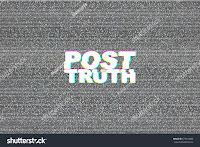After Yoon Seok-yeol won the 20th presidential election, the Korean Peninsula is already in turmoil. With the launch of the new government, North Korea is poised to take the initiative with major provocations such as the launch of a new ICBM and the seventh nuclear test. In his campaign, Yoon Seok-yeol vowed to promote peace based on strong national defense, not surrender, in response to North Korea's armed demonstrations. Changes in surrounding conditions, such as the emergence of a conservative government in South Korea and Russia's invasion of Ukraine, are expected to further accelerate North Korea's self-defense and nuclear-missile war deterrence. It is foreseen that the atmosphere of war, which is getting boring whenever a conservative government appears, will spread again.
As soon as Yoon Seok-yeol's election results came out, North Korea revealed its uncomfortable feelings through internal media. The Unification News, a weekly newspaper for North Korea's foreign affairs, harshly criticized the people's power throughout the presidential election period, saying: "The only thing that will be caused by indiscriminate rash acts and seeing the North with an evil heart is a military conflict between North and South Korea." There are several points to note that the North Korean authorities are concerned about and criticize the new government's policy toward North Korea.
First, the president-elect Yun Seok-yeol criticizes the Moon Jae-in administration's North Korea policy as a completely failed and submissive policy; secondly, it denies the declarations of the inter-Korean summits (April 27 Panmunjom Declaration, September 19 Pyongyang Joint Declaration, and the South-North Military Agreement). Third, it puts the issue of complete denuclearization and human rights at the front, and fourth, it insists on restoring the ROK-US alliance, while strengthening ROK-US military training and the possibility of an anti-North Korean military confrontation. Basically, North Korea seems to be looking at the Yun Seok-yeol administration's North Korea policy as an extension of the Lee Myung-bak administration, which put the 'non-nuclear, openness, 3000' policy at the fore, and the Park Geun-hye administration, which in fact pursued unification by absorption called the 'unification and great success theory'.
As the peace process on the Korean Peninsula promoted by the Moon Jae-in administration eventually reached a deadlock, it will be inevitable for the new government to reset its North Korea policy and strategy. The new government is revealing its plan to completely denuclearize North Korea and deter further provocations by restoring the strong ROK-U.S. alliance, that is, by rebuilding the ROK-US combined defense posture and by expanding the ROK-U.S. deterrence against North Korean nuclear weapons.
The idea is to secure a firm deterrent against the North Korean nuclear threat and to maximize the effect of extended deterrence by conducting large-scale joint exercises between the United States and South Korea. Based on a comprehensive alliance, it is expected to actively strengthen the alliance between Korea, the United States, and Japan while supporting the US Indo-Pacific strategy. In addition, there is a growing possibility that the United States, Japan, India, and Australia will participate in the unofficial security council, 'Quad'. North Korea will further spur the development of strategic and tactical weapons under the pretext of strengthening its defense capabilities for self-defense, and will further intensify its solidarity with the socialist countries of China and Russia, intensifying the new Cold War.
It seems difficult to imagine a reversal of inter-Korean relations at the moment because the willingness not to give in to each other is stronger than ever. After many twists and turns, the door to inter-Korean dialogue may open again someday. However, as the Moon Jae-in government experienced, the reality of inter-Korean relations is that practice is more important than the agreement itself, and it is difficult to take a step forward without steadily patiently building sufficient trust between each other. For the time being, we will not be enjoying the spring of peace.






